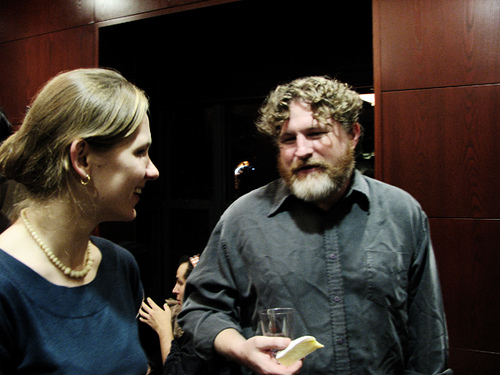Uncategorized
Story by Story: Brian Evenson’s Fugue State (17) ‘Fugue State’

The 17th and titular story of Fugue State is also its lengthiest, and of all those before it, perhaps the tract with the widest aim. Whereas up until now the majority of the texts herein have reckoned with themselves via a manner of constant recursion, spiraling into their own centers, ‘Fugue State’ the story is bookended by situations that find the ever-disassociative protagonist at the cusp of exiting his interior–and yet, in each instance, the bookends ultimately also end up serving as mirrors, reflecting, again, the lack of light onto itself.
As the title suggests, and again as has been the primary defining factors of all of the voices herein, our protagonist suffers from the inability to keep his reality in crystal grips. Any time the sentences find him beginning to ascertain something about himself to be true, or presented as true to the reader, further sentences serve to skew that understanding via small strokes, often questions the protagonist asks himself–”Had he done anything wrong?” “But couldn’t he explain that away?” “’Is anybody there?’” “’Do you remember your name?’” The deeper on we tread into the story, also, the quicker the questions begin to come, as further skewing, and skewing of the skewing, leaves even the questions to be questioned. What is being asked?
The ultimate function of this interrogative barrage, under Evenson’s careful hand, is to place the reader firmly in the protagonist’s head, making his logic, his constantly recentering confusion, ours. Even as we begin to see patterns emerge out of the slurring, things the protagonist himself, disassociating, can not see, we are forced to continually update what we believe the answers to those questions are. And as one question’s answer is shifted, so do the questions underneath it, resulting in a text that in a way operates as a house of shifting cards–a puzzle box in the way of old pulp detective novels, and existential horror films, but cut also in the strangely funny and intensely unsettling language Evenson has by now become steadfast to provide.
One of the major ways Evenson’s haunting becomes even more jarring than an image or a sound is through his use of extremely simple but tightly worded tactile details on the face of his terrain’s plain space, establishing form, such as “ratchet-headed black screws,” “two toothed circles,” “deliberately boarded in.” These eerie specificities, among the endless quasi-philosophical circling, gives a heavy grounding the headspace of the protagonist in his perceived dementia, mixing soft with hard, and high with low. Strange details wormed into the circling, such as, “In the oven he found the tightly curved body of a cat, long dead, dry as a plate.” leave placemarkers on the mind in pursuit of a map that is both anomalous and very clear.

Negotiation of the way the protagonist’s body moves, while holding the constantly spinning mind inside him, makes for even further sublime pleasure in the way these shifting moments allow themselves into the reader’s understanding. As the protagonist searches through himself in mostly blank rooms, empty hallways, massive buildings, there is a huge amount of mind paid from a sort of overhead stance toward the text’s proposed space and contained space, the passages between and among the spaces making up the larger space of the whole text, the negotiations therein, the manipulations of the elements set into the field: as in the way Arnaud, or Hapner, the protagonist of the story finds himself in a blank apartment room boarded in and uses bits of mirror, rubber band, and prybar to erupt himself out of the contained space where a woman who may or may not be his wife lays dead.
Out of all these circlings and pinnings, all this brutal spinning of the gears, what really makes ‘Fugue State’ the story, as well as Fugue State the collection, loom is how it tackles both abstractly and concretely the very real notion of how hard it is to know most anything at all. Even those who might beat their brains in looking for what is ‘human’ among these kinds of worlds where plagues eat up all people and men murder their wives would be hard pressed to argue that they’ve never wondered about the designing of their rooms, where certain hours of their time go, what happens around them while they sleep. Furthermore, the strange aphasias of memory as times passes and as our halls and air make with their shift.
“But whom did he know?” the story asks of its protagonist, somewhere between his forced loop of a building where most everything he might could have learned to remember is destroyed. “He couldn’t remember having known anyone.” Whether he remembers having known one once, in his looping, having known himself even, and for how long, and what knowing another person could ever even be like, and in what light, is another set of questions for the endless index in the blight.
[Buy Fugue State.]
[For other reviews of all the other stories in Fugue State, check out my archives here.]
Tags: brian evenson, fugue state

This story was fucking aces.
This story was fucking aces.
“What a strange message, Arnaud thought. Or wait, the man thought, I’m not Arnaud, that’s not my name, my name is something else. What was it?“
“What a strange message, Arnaud thought. Or wait, the man thought, I’m not Arnaud, that’s not my name, my name is something else. What was it?“